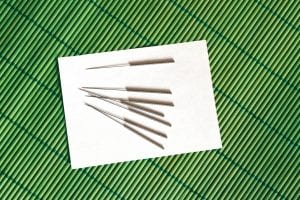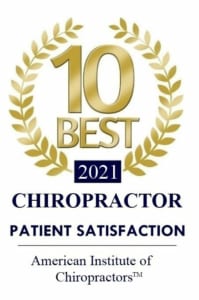Acupuncture for Infertility?
How is Infertility Acupuncture Used?
For centuries, acupuncture has been used to help couples experiencing difficulty conceiving. In this article, we hope to answer the common questions we get at Integrated Physical Medicine, Evansville’s Acupuncture clinic, regarding acupuncture, chiropractic, healthy pregnancy, and fertility.
Acupuncture helps to treat many underlying causes of infertility such as hypothyroidism and hyperthyroidism (underactive and overactive thyroid glands respectively). Acupuncture can increase blood flow and improve the functioning of the ovaries. Although Acupuncture carries minimal risks and is often used to treat infertility in conjunction with holistic, herbal, and/or traditional medicine.
Is there scientific evidence that acupuncture can help infertility?
Absolutely! Studies have been published looking at acupuncture’s infertility benefits in IVF/ICSI. Researchers showed a doubling of pregnancy rates in patients receiving luteal-phase acupuncture treatments compared to a group receiving a sham-acupuncture treatment. [1] Many other studies have been done which also demonstrated significant benefits. [2,3,4 are just a few of dozens] There have been other studies published which have not shown improvements in fertility rates, but all of these studies did show that acupuncture was quite safe and had high patient satisfaction rates. The best chance of success is when acupuncture and traditional infertility treatments are combined, though there are some anecdotal cases of acupuncture alone assisting with infertility.
Does acupuncture help with all types of infertility?
Infertility is a complicated condition and not all causes of infertility can be helped with acupuncture. This is especially true of anatomical issues such as those due to the scarring from endometriosis or other pelvic inflammatory diseases. Even though acupuncture can help those who suffer from these sorts of conditions, it cannot reverse the scarring and damage those conditions do to the body. For example, fallopian tube scarring cannot be treated with infertility acupuncture. However, fallopian tubes in spasm can often be resolved through acupuncture treatment.
Acupuncture has been shown to be effective in resolving infertility due to:
- Polycystic ovarian syndrome (PCOS)
- Elevated follicle-stimulating hormone (FSH)
- Luteal phase defect
- Hyperprolactinemia (when not caused by a prolactinoma)
- Past or repeated pregnancy loss
- Male infertility affecting sperm such as DNA fragmentation
- Hormonal issues such as thyroid disorders
- Unexplained causes of infertility
In short, in cases where infertility is due to non-anatomical concerns, acupuncture is often an effective treatment.
When is the right time to begin acupuncture infertility treatments?
Patients are commonly treated weekly for three to four months before moving on to insemination, IVF, or donor-egg transfer. The frequency and timing of treatment should be tailored to the individual for the best results.
Like chiropractic, physical therapy and other forms of physical medicine, acupuncture is very process-oriented and requires repetition to have maximum benefit and the maximum chance for success. In cases where there are other conditions potentially affecting the patient’s fertility chances (e.g., obesity, PCOS, pinched nerves in the low back) appropriate conservative therapies in addition to the acupuncture treatments will be suggested.
 Is infertility acupuncture risky?
Is infertility acupuncture risky?
Yes, but only if performed by somebody who is not a licensed acupuncturist trained in managing pregnancy and infertility related issues. In fact, there are several acupuncture points that should never be treated in pregnancy, so make sure your infertility acupuncture provider is experienced, licensed, and specializes in infertility treatment.
Acupuncture, when performed by a licensed acupuncturist trained in fertility acupuncture, is generally considered one of the safest medical interventions in use.
Will insurance cover my acupuncture treatments and what is the cost?
Not likely, though you should check with your insurance provider. Some acupuncturists often special rates. For example, Integrated Physical Medicine offers bundled packages that make it quite affordable for those patients seeking infertility acupuncture in Evansville, IN.
To give you an idea of the cost without insurance, at our office, the entire three-month program of weekly treatments can be secured for less than $800. This can be broken down into affordable monthly payments if necessary. Your out-of-pocket expenses will be even lower if you are also receiving chiropractic care, which is almost always covered by insurance.
Acupuncture for infertility is holistic, affordable, and effective
With hormone therapy costing around $2,000 per month, acupuncture is not only a more natural option, but it’s also more affordable as well. Though acupuncture doesn’t resolve all causes of infertility, there are plenty of case studies demonstrating that it is an effective treatment for many couples trying to conceive.
References
- Stefan Dieterle, Gao Ying, Wolfgang Hatzmann, Andreas Neuer, Effect of acupuncture on the outcome of in vitro fertilization and intracytoplasmic sperm injection: a randomized, prospective, controlled clinical study, Fertility and Sterility, Volume 85, Issue 5, May 2006, Pages 1347-1351
- Lars G. Westergaard, Qunhui Mao, Marianne Krogslund, Steen Sandrini, Suzan Lenz, Jørgen Grinsted, Acupuncture on the day of embryo transfer significantly improves the reproductive outcome in infertile women: a prospective, randomized trial, Fertility and Sterility, Volume 85, Issue 5, May 2006, Pages 1341-1346
- Wolfgang E Paulus, Mingmin Zhang, Erwin Strehler, Imam El-Danasouri, Karl Sterzik, Influence of acupuncture on the pregnancy rate in patients who undergo assisted reproduction therapy, Fertility and Sterility, Volume 77, Issue 4, April 2002, Pages 721-724
- M Zhang, W.E Paulus, E Strehler, L Jelinkova, K Sterzik, Increase of pregnancy rate in assisted reproduction therapy by acupuncture., Fertility and Sterility, Volume 76, Issue 3, Supplement 1, September 2001








